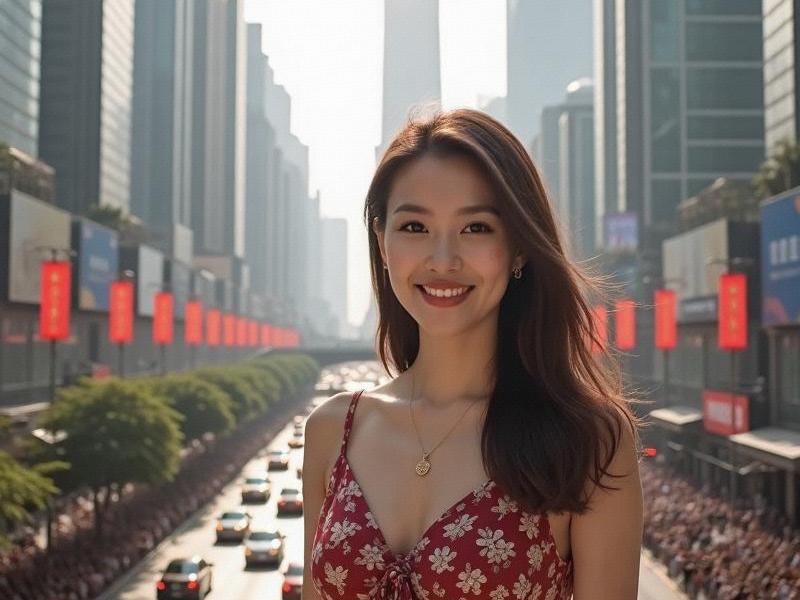This 1,800-word feature examines how educated, ambitious Shanghai women are challenging traditional beauty norms while achieving remarkable professional success in China's financial capital.

The morning rush at Shanghai's Jing'an Temple metro station offers a fascinating study in contrasts. Among the streaming commuters, sharply tailored female executives stride alongside fashionable influencers, while university students debate startup ideas - all representing different facets of what it means to be a "Shanghai beauty" in 2025.
Shanghai's women have long been celebrated for their style and sophistication, but recent years have seen a profound shift in how beauty is defined and expressed in China's most cosmopolitan city. The traditional "white, rich and lovely" ideal is being challenged by a new generation valuing education, career achievement and social impact alongside physical appearance.
Key statistics reveal this transformation:
- 72% of Shanghai women aged 25-40 hold bachelor's degrees (national average: 38%)
上海龙凤419社区 - Female-led startups received 45% of Shanghai's venture capital funding in 2024
- 68% of married women report making equal or greater financial contributions than their spouses
- The city's female-to-male ratio in management positions is 1:1.3 (best in China)
Education serves as the foundation for this change. Shanghai's female students consistently outperform their male counterparts academically, with girls comprising 65% of students at top universities like Fudan and Shanghai Jiao Tong. This educational advantage translates into professional success - women now lead 38% of Shanghai-based multinational corporations, up from just 12% in 2010.
上海贵族宝贝龙凤楼
The workplace transformation is perhaps most visible in Lujiazui, Shanghai's financial district. At the newly opened Shanghai Tower offices of Goldman Sachs, 32-year-old investment director Liu Yaxin manages a $2 billion portfolio while mentoring young female analysts. "Our clients care about performance, not whether I wear designer heels," she remarks during a quick coffee break.
Fashion and beauty industries are adapting to these changing values. Local cosmetics brand Florasis has seen 300% growth with its "Professional Beauty" line targeting working women. Meanwhile, Shanghai Fashion Week now dedicates an entire segment to "Office Power Dressing," featuring sleek, functional designs by female-led labels.
上海品茶网 Cultural commentators note an intriguing paradox: while Shanghai women are breaking glass ceilings, traditional feminine ideals still hold sway in personal lives. Matchmaking markets in People's Park continue to thrive, though today's listings emphasize educational credentials and career achievements alongside physical attributes.
The challenges remain significant. Gender pay gaps persist (averaging 15% in Shanghai), and working mothers still face workplace discrimination. However, progressive policies like Shanghai's extended maternity leave (now 8 months) and corporate childcare subsidies are helping address these issues.
As Shanghai cements its position as a global city, its women are crafting a new narrative - one where beauty encompasses intellect, ambition and social contribution as much as physical appearance. In doing so, they're redefining what it means to be a modern Chinese woman in the 21st century.